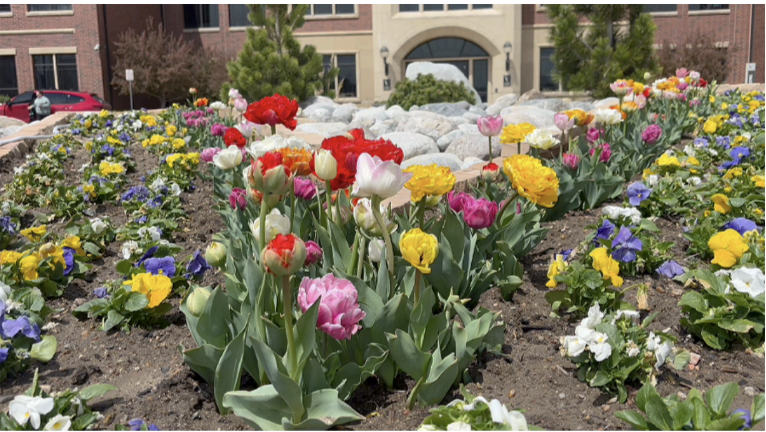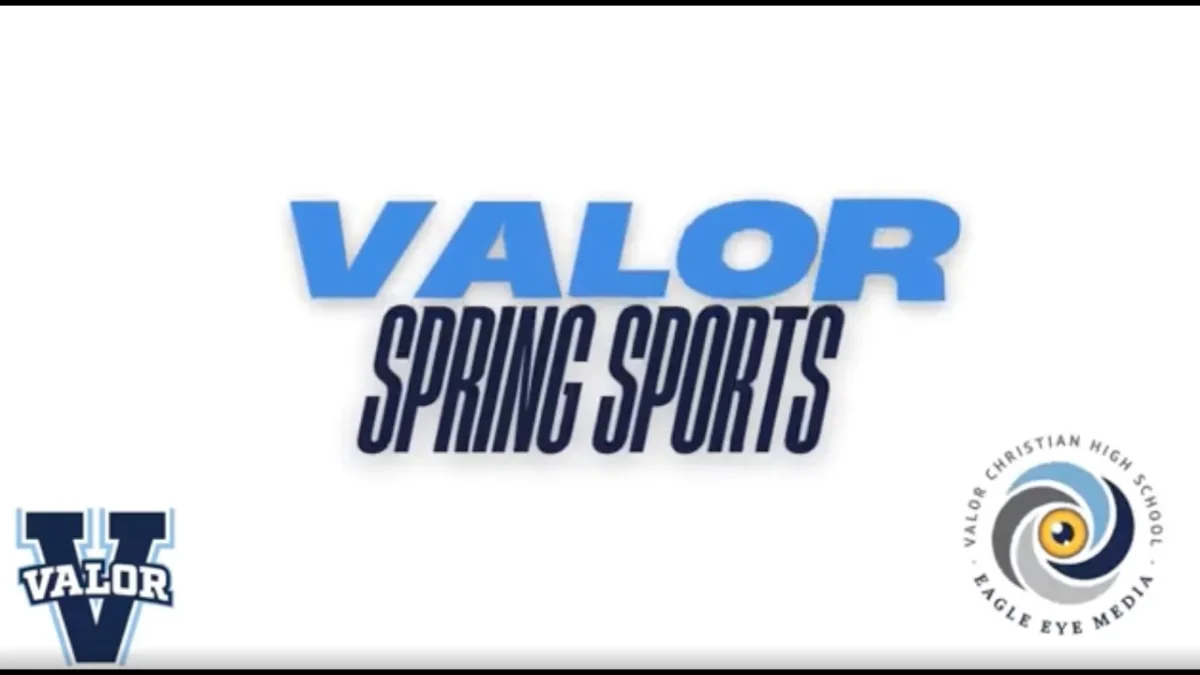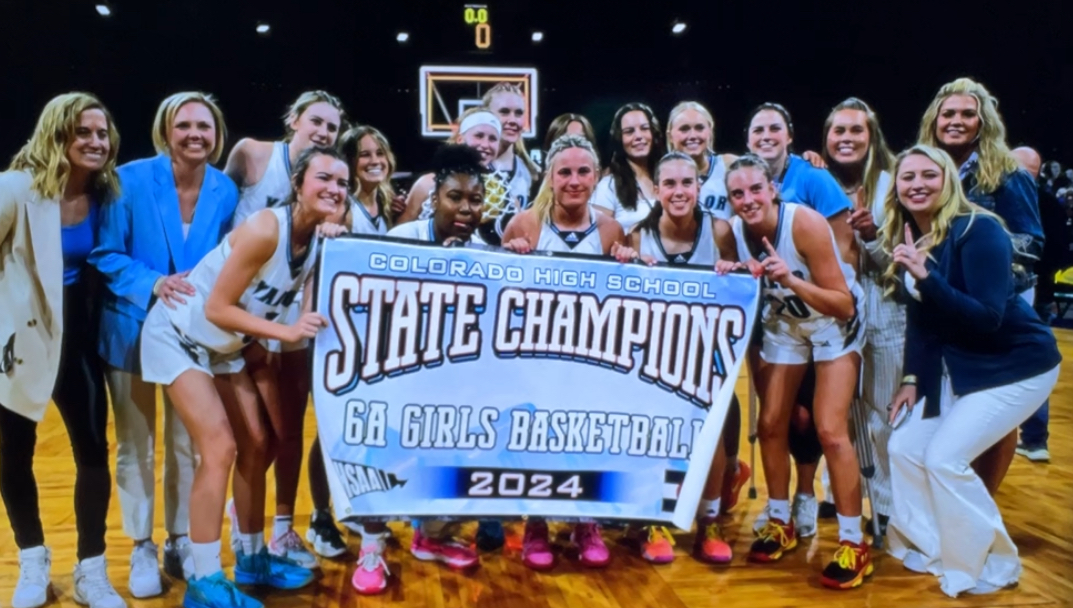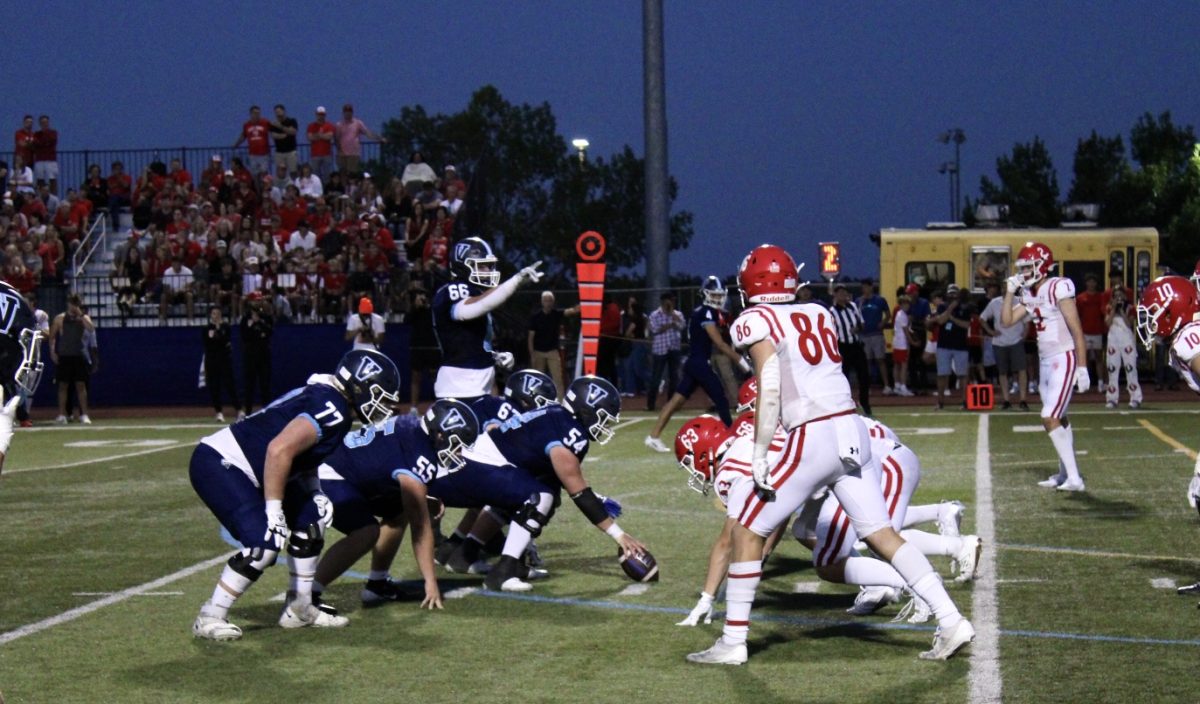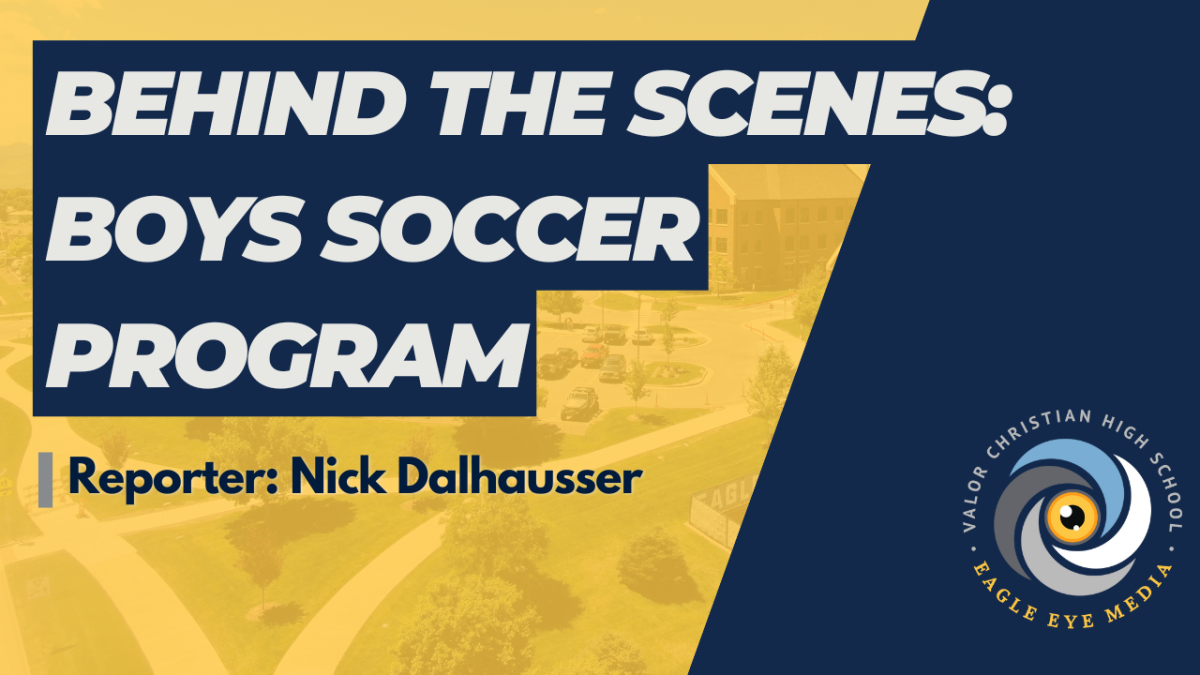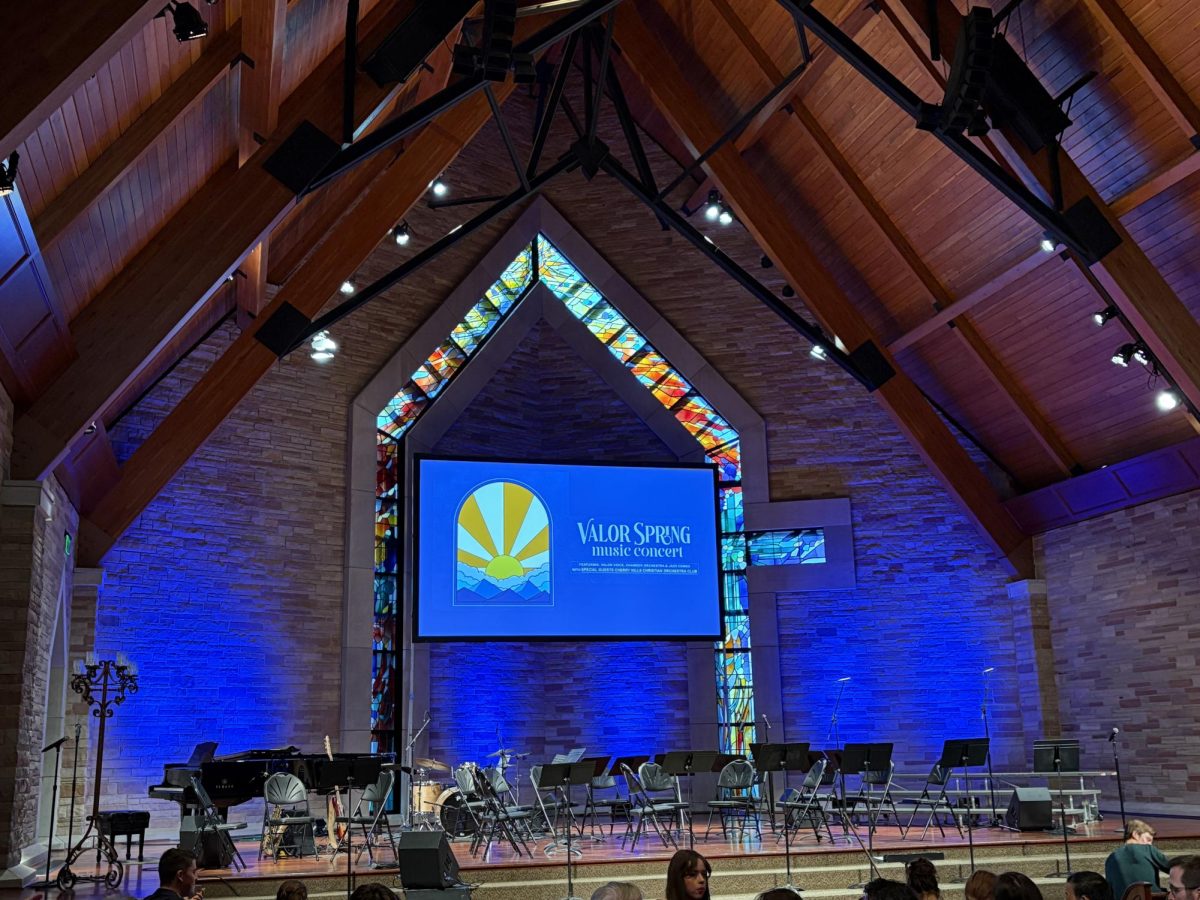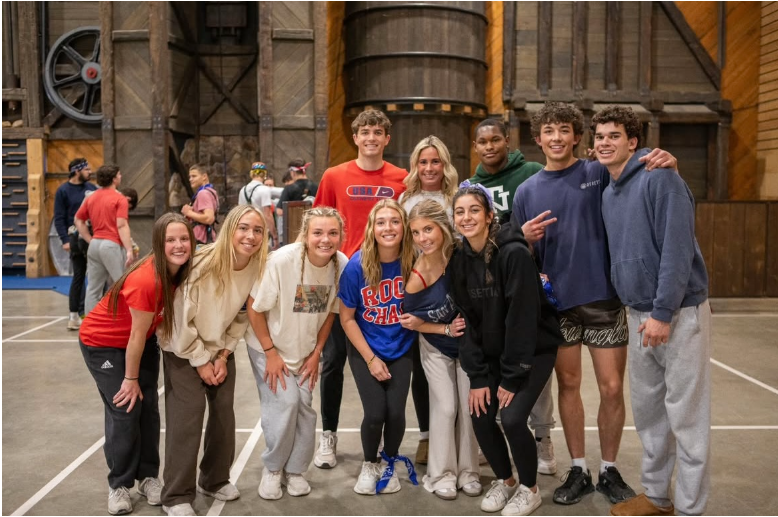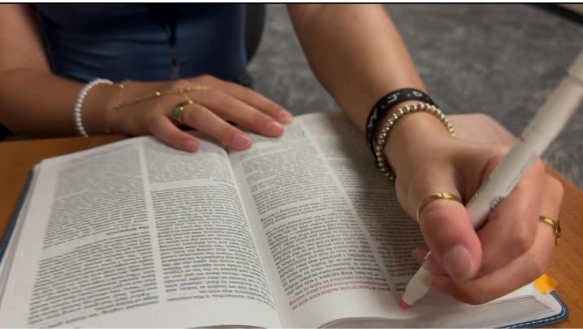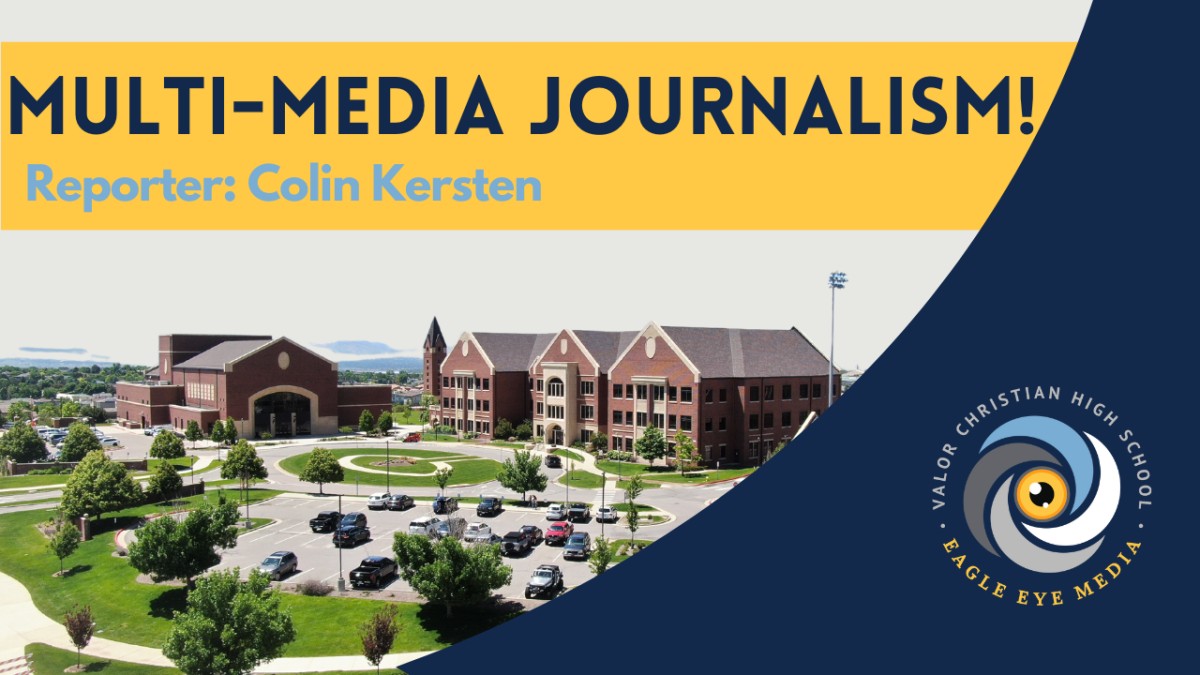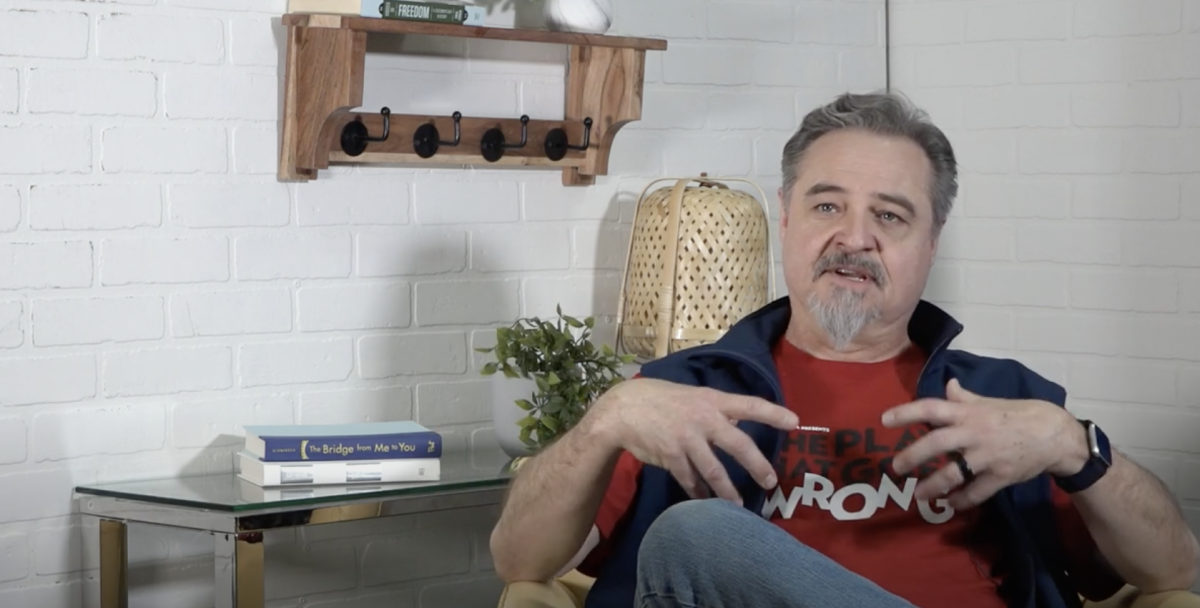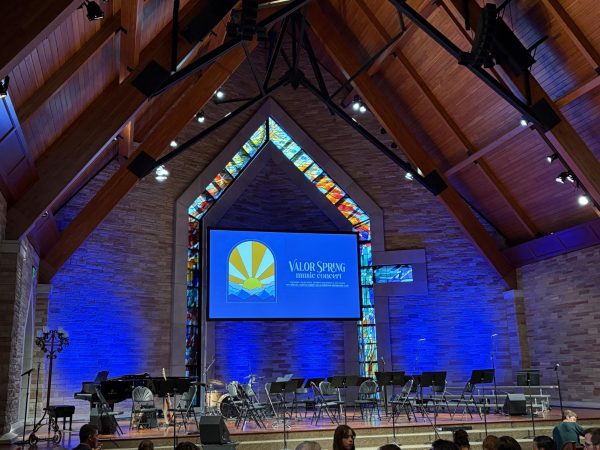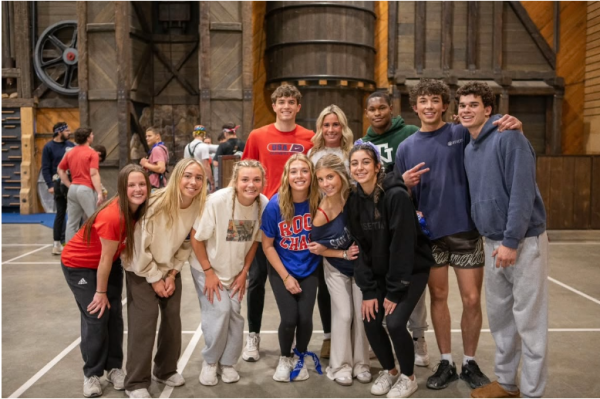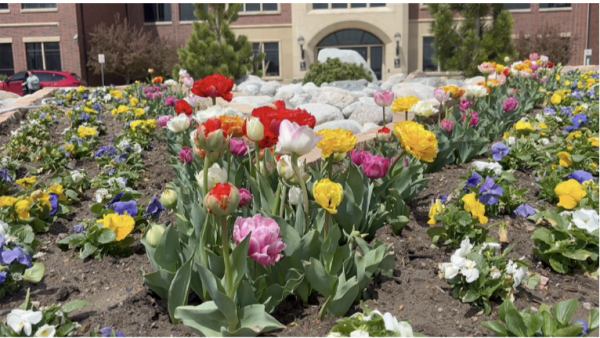Tonya Ladwig VP–Human Space Exploration & Orion Program Manager Lockheed Martin Space: Q + A

Tonya Ladwig is working to get the next person on the moon. Or maybe even Mars.
Ladwig is the Vice President of Human Space Exploration & Orion Program Manager at Lockheed Martin Space and the wife of Valor business teacher Mark Ladwig.
Though Ladwig has nearly three decades of highly successful engineering experience, she began her career journey believing she would become a doctor. She never even imagined engineering as a possibility.
“I didn’t see a lot of women in engineering roles, especially very feminine blonde women like myself,” said Ladwig. “Even in college, I didn’t see myself in that profession.”
Tonya spoke to me about her work on the Space Program:
JOHNSON:
Begin by describing your journey to VP of human space exploration.
LADWIG:
I took a different path. So I went to school thinking that I wanted to be a doctor, let me back up a little bit. My dad worked at Martin Marietta, which was part of what is now Lockheed Martin. And back, 30 years ago, I didn’t see a lot of women in engineering roles. And so and especially like, very feminine blonde women like myself. And so I actually went to college thinking that I wanted to be a doctor because I just didn’t see myself. Even though when I was in college, I took physics for extra credit. I didn’t see myself in that profession. So lo and behold, I ended up, graduating from college and needing to retake the MCAT because I didn’t do well in organic chemistry. And so I kind of did some self-reflection, and my dad at the time was working, working in Martin, Marietta. And since I had a strong chemistry background, from my schooling, he’s like, Hey, at work, we really need some chemists in our quality lab maybe should apply there while you’re trying to figure out what to do. So I applied there. And I started working in the quality lab doing a kind of nonvolatile residue analysis, which is what you do when you test materials before they go into space. And doing some maintaining, like that we did chemical milling back then maintaining the chemicals. And while I was there, I didn’t love that job. But I loved the culture there at what was then Martin Marietta. and I was doing a lot of retraining for software engineers, because they really needed folks to do software. And so I went back to school and got a degree in software engineering, more, it’s more software computer science at the time, in my master’s degree and moved over into software. So while I was lucky, I worked in a bunch of different software roles and eventually made my way into a leadership role. I was a software manager on a classified program. And I really got into some leadership development opportunities. There are some programs at Lockheed Martin at the time that I ran, where I got to really develop my leadership skills. And then I became part of their program management development program. At one point in time, I was still within software leading larger and larger software teams. And I was eventually the director of software engineering at Lockheed Martin. And while I was doing the program management development program, and so I got into program management. And so program management I love because you deal with the cost, technical, and schedule, but you also deal with the external customers. So I ended up in my first role on Orion the first time I was doing software, but I had a great customer and worked through some challenges in the Orion software team. So back then we were delivering we were developing the software that everyone saw flying on the Artemis one mission that got launched this last year. So, my team developed that software. And it’s a really complex mission with a lot of guidance, navigation, and control. And that’s all handled by the software. So all the different orbits and going into distant retrograde orbits. That’s all done by the flight software. So my team developed that and that was back in like 2016 2018 And then I went to go, there was an opportunity to go work for the GPS program. So I went over to a team called the navigation systems team and I ended up being the GPS, three satellites, and program manager. So all the GPS, three satellites, that’s a third generation of GPS satellites. And of course, whether it or not all the navigation on your phone, all that when you order an Uber, you’re using GPS, all of the banking transactions are run on the GPS timing. So it was a really cool mission, where we launched the GPS satellites. And so I was there, we launched and transitioned into operational capability, five GPS satellites. And so I was there for about four or five years. And then just this spring, the person that was running human spaceflight here at Lockheed Martin, announced his retirement. So we worked kind of a long transition, where he worked through the Artemis One mission. And I took over Artemis Two and beyond, so that, that we were on contract for the next eight missions for the Orion. We’re gonna be taking humans to the moon in the next couple of years for Artemis Two and then landing on the moon for Artemis Three.
JOHNSON
Wow, that’s so cool. I love that. I used to be really into space but I’ve come to realize I’m not much of an engineer.
LADWIG
That’s the coolest thing. I know a lot of folks think that STEM is on the way and getting into space. But, we have a huge journalism and communications team. So we have a lot of communication folks that work with space, but they work with the news outlets and the reporters. And folks like that to help, share our story. We have finance and biz ops folks that do the financial planning, so you don’t have to be an engineer to be involved in space.
JOHNSON
Yeah, that’s true. That’s so cool. I love how you mentioned, not seeing many women and especially more feminine women in your industry. So, how has that experience been for you?
LADWIG
There are a lot more women in the industry now. I would say as I moved my way up, in software, for example, I’ve noticed a lot more women leaders. Representation is so important because it’s hard to picture yourself somewhere if you don’t see people like you there. So it’s really shaped how I do things. It’s important to be present and let folks see that women can do this. I have a great story where I was on CBS Sunday Morning, back in 2019, talking about GPS, and one of my customers at the time who worked for the Space Force was sitting there with his daughter looked at him, and said, “I didn’t know girls could do that, dad.”
And so he was like, he was like, “Tanya, it’s so important that you’re doing things like that, even though they’re hard.”
Doing things on TV is not my favorite. That’s not my sweet spot. But it’s important for young women to be able to see other women doing those roles. Because getting diversity in those roles is so important. Not just to, check a box, but we think differently. Good and bad, right? Men and women and people with different backgrounds. So it’s really important that we get a really good diverse, diverse workforce.
JOHNSON
Yeah, I totally agree. That’s super important. Kind of shifting gears, how would you say your, faith or Christianity has come into play in your career?
LADWIG
Part of my experience is just being patient and understanding what God’s plan is for you. I think [Christianity] translates to all careers, right? When you are unsure or feeling imposter syndrome, it’s important to trust that God’s got a plan for you. And trust that he will put only put you in positions that you can handle and that’ll help you grow. I can’t talk about my faith broadly, but I would also say that use my faith a lot in my leadership because I truly think that there are real differences you can make by leading by example, treating people with compassion, treating people like people, and understanding that everyone is going through different things. I really lean on my faith heart there to try and be Christ-like in how I engage with my teams and my employees. I think it creates a safe space for them to be their best selves.
JOHNSON
Yeah, I definitely agree. I suppose especially because this culture is so volatile toward Christians. I think just being a good person, being kind towards other people, and putting other people before yourself is the best way to show God’s love.
LADWIG
Exactly and there are people that will share that they’re Christian. So, in my old role, I had a coworker who is from the Church of Latter-Day Saints. We didn’t have the same background, but we had enough of the same tenants that, when I was struggling, we were able to use our faith to lift each other up. When things are hard in the workplace, it’s helpful to find those that have [faith] in common with you. As I said, you can’t, be oppressive with [religion], but when you find people with that connection, you can definitely leverage it to work through difficult or uncertain times. That’s been really important.
JOHNSON
What’s been the highlight of your career so far, and what do you look forward to the most?
LADWIG
One of the highlights was when we were launching our second GPS vehicle. It was launched with United Launch Alliance, which is a different company than we launched the other vehicles with. They do a ceremony before the launch where everybody signs a certificate. So, my customer, the ULA leads, their customer, and I, all got to sign the certificate. Two out of the six signers were women. They looked at the signatures and said they’d never had this many women sign. It was a poignant note for me because I was sitting on the console for the Lockheed Martin side, being able to say, “We’re going for launch.” My female customer and I looked at each other and smiled because it was a big deal. So having those firsts are huge career highlight. What I look forward to, with human spaceflight, is getting the first woman, the first person of color, and the next man back on the moon. It’s been 50 years, and I’m super excited. Leading others is the other career highlight in my senior leader and vice president and coach role. One of my favorite things to have to happen is when I’m giving somebody feedback or helping them work on something, and seeing them overcome it, whether it’s a technical challenge or a behavior issue; seeing people take feedback and change and grow is probably the highlight of my career.
JOHNSON
Yeah. Seeing that growth and looking back on it is always so good. What advice would you give today’s young people chasing a career like yours?
LADWIG
I always tell folks that initiative is critical and looking for ways to fill the gaps—no matter your career and role. If you look for holes that need to be filled, try to serve them, and help people develop solutions, you can go anywhere with that. And it does two things: It shows that you’re looking beyond your role. And two, people see you in a slightly different position than your role. So I’ll give you an example. Say, I’m a software developer working on a project, and I see that a more significant integration issue needs to happen. You can go to your leadership and say, “Hey, I’m not the one. I don’t know how to solve it myself. But can I bring the right people together to try and solve it” They see you as more than a software engineer; they see you as someone looking at the bigger picture. It translates into all different roles.
JOHNSON
What’s it like being a mother, having the responsibility of children and a family, and your career?
LADWIG
It’s really hard. A big part of that is the partnership with your spouse. There are times when I’ve had to lean on Mark, one of the reasons he got into teaching. He was in a very different career for a while, and I was traveling. And it was really important to us that one of us was consistently home with our kiddos. So during that time, [my husband] was like, your career is at the point where you need to travel a lot, and I find a different role. That’s part of how he got into teaching. Part of being a parent with a career is finding that balance with your spouse to support you. It’s really important to be there for your kids. The other thing that someone told me that I try to pass along is never to talk poorly about your job. Don’t talk about how you hate your job or don’t like your job, especially when talking to your kids. Because you’re leaving your kids for 8 or 10 hours a day to do this, it sends the wrong message that you’re spending time away from them for something you don’t like, right? That’s a bad message for them. The other thing, too, is it helps reshape your job for you if you’re thinking of the positive things and the good things. So my kids have always heard about what I’m doing and the impact that I’m having. I share the good things with them so they understand why I need to be in Florida for two weeks to launch a GPS satellite. It’s also been something I’ve tried to do so they feel connected to my job, too.
JOHNSON
Yeah. That’s great advice, and you have such an incredible story, so thank you.
Your donation will support the student journalists of Valor Christian High School. Your contribution will allow us to purchase equipment and cover our annual website hosting costs.

